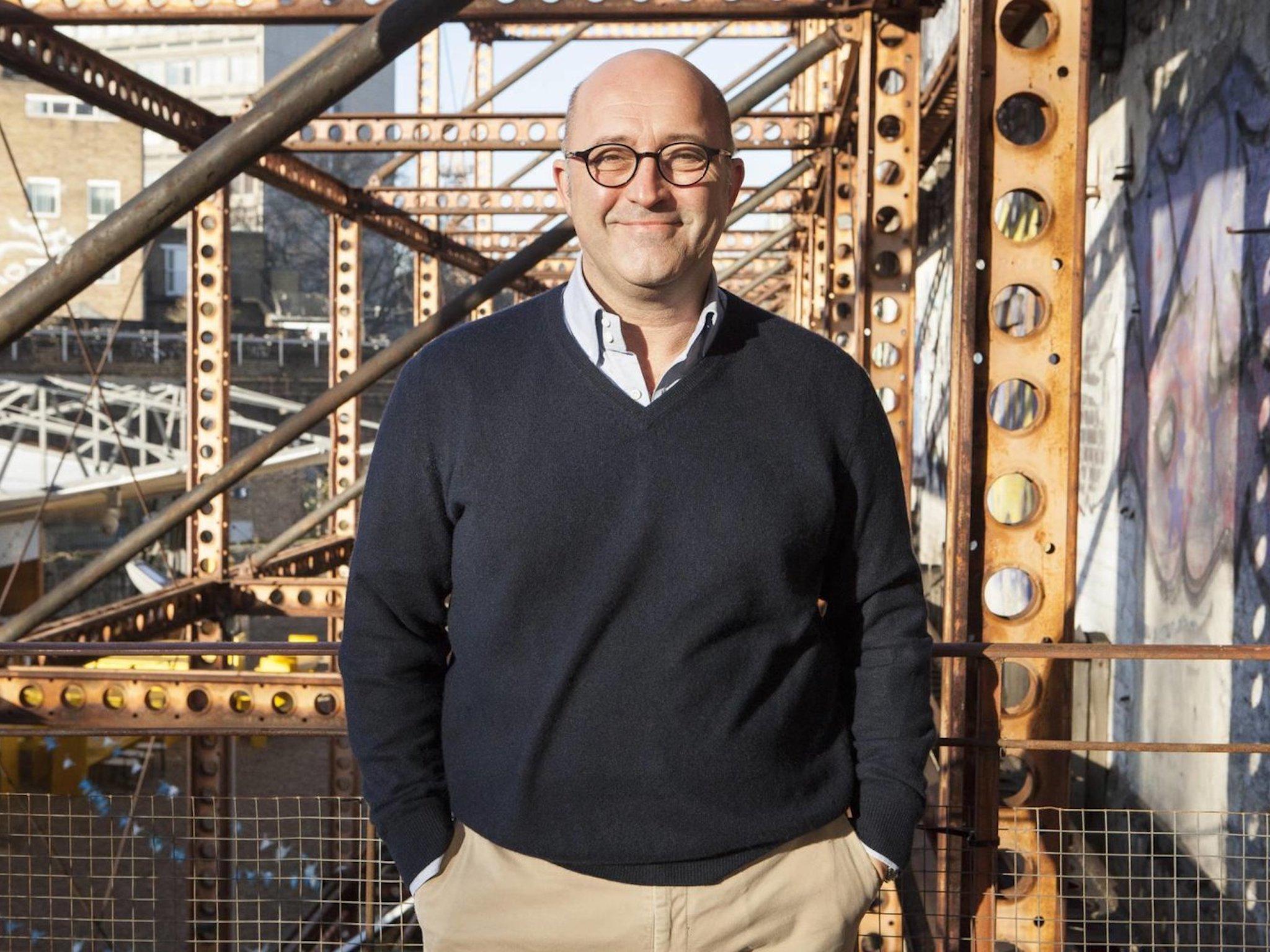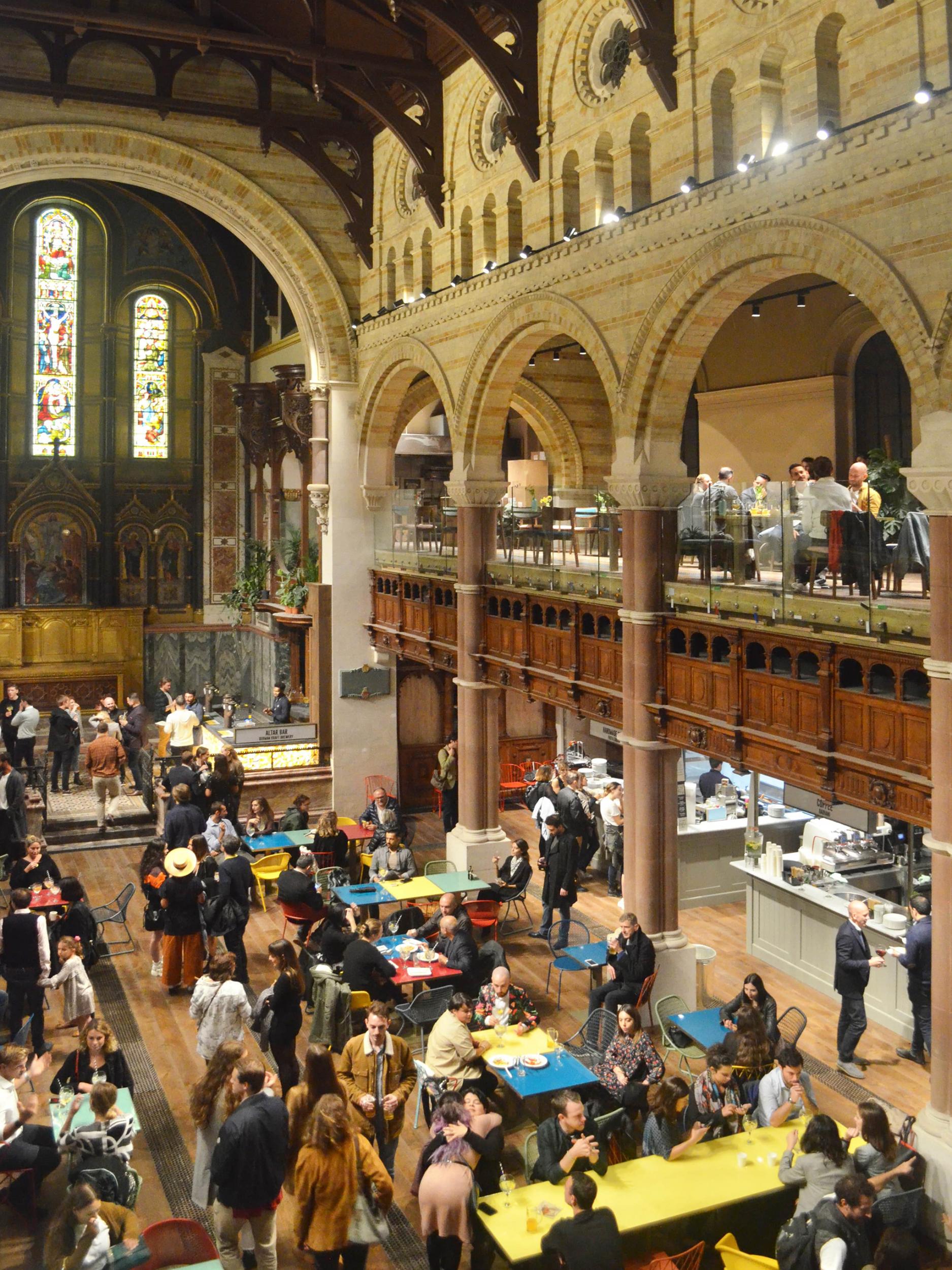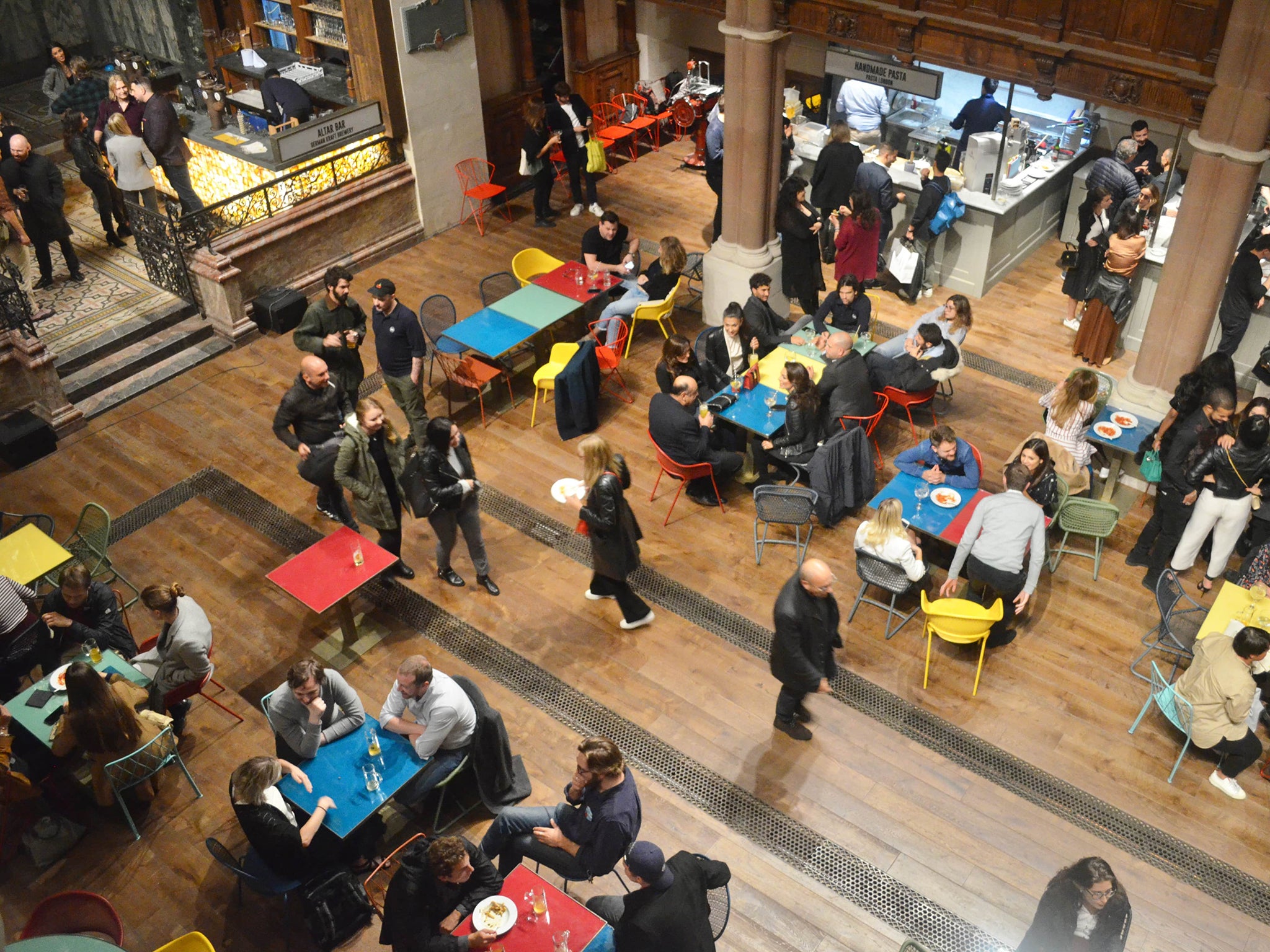Mercato: The firm hoping to bring a food revolution to Mayfair
Market inside a grade-I listed church will host food stalls, a grocery store and a brewery. Hazel Sheffield reports

It’s lunchtime on a Tuesday and Meliti Bampili Thymara and Vasilis Kalamoukis are busy preparing wholegrain bao buns ready for the launch of Mercato Mayfair. Their business Steamy&Co is barely a year old and yet it is about to take a big leap forward as one of the inaugural food stands at the brand new urban food market opening in a grade-I listed church moments from Oxford Street in London, and they can still barely believe it.
“When we were trading at a weekly Hackney market we wouldn’t have imagined that a year later we would be in such a beautiful setup, in a church. I’m not sure it has settled inside us!” Bampili Thymara says down the phone from Mayfair.
Steamy&Co is one of 19 food vendors opening at the site, which has been through a £5m restoration by the Grosvenor Estate, the Duke of Westminster’s property company, in preparation for its new tenants. When Mercato Mayfair launches, it will be the first time since 1974 that the former St Mark’s Church, now deconsecrated, will be open to the public. As well as new vendors like Steamy&Co, a handful of vendors from Mercato Metropolitano’s original location in Elephant and Castle have been offered a stall in the building, selling gelato, pizza and gin. There is space for a supermarket of artisanal goods, an in-house brewery for craft ales, a florist and a French bistro restaurant.
The communal areas will be used for educational and cultural activities, including courses on nutrition and fighting diseases resulting from a poor diet, according to Andrea Rasca, the Italian founder of Mercato Metropolitano, whose ambitions stretch much further than simply selling bao buns.
“We are building a movement,” Rasca says. It is two days before the Mayfair opening and he is fresh off the plane from New York, where he has been discussing the potential for five Mercato Metropolitanos on the eastern seaboard. “Not just stores – food as a movement. We want to rebalance the food system around the world in cities. That’s why we are called Metropolitano, because we work in cities.”
Rasca fell in love with food as a boy growing up in Italy, when his family would gather around the table at 8pm to eat together and discuss the day. “This for me was the most beautiful thing, but also scary – because I had to talk to my father,” he laughs. “I loved it so much that I started organising parties based on food at home.” He went on to study business and economics in Spain, winning a scholarship that took him to Japan in 1995, where he spotted a business opportunity selling Italian food – pizza, pasta and coffee – to the Japanese. He worked with Eataly, the ubiquitous Italian-American food hall, to open its flagship store in Daikanyama in Tokyo in 2008.

Mercato Metropolitan has a very similar flavour to Eataly, with its artisan grocery stores, independent food vendors and communal spaces for eating, but Rasca says Mercato goes further, beyond Italian food. Just 20 per cent of Mercato Metropolitano vendors sell Italian food: “This is what people want,” he says.
With Mercato, Rasca has embraced a strong education and environmental component. “The store was not just a means to get the maximum profit, which is correct, but I wanted to have social profit, which for me was more rewarding,” he says.
He got the opportunity at the 2015 World Expo in Milan, where he won a six-month contract to open a farmers’ market in the centre of the city. It attracted more than 2.5 million visitors in four months.
When the six months were up, Rasca looked to open a market in a disused space in London. He found a former paper mill near the Elephant and Castle roundabout, where Mercato Metropolitano opened its first London outpost in 2016, playing host to 50 vendors selling food from all over the world.
“I was looking around for two or three months [for the space],” he remembers. “Often they show you a location which is fantastic for the footfall of people, but people want a community to build something that is beautiful. When I was working in Elephant and Castle and I saw this old paper factory which had no electricity, no water, but it was beautiful, you could see the potential was amazing, and the reality was that the community was vibrant but could be more vibrant.”
Elephant and Castle is home to the largest Latin-American community in London. Latin traders in the Elephant and Castle shopping centre fought to keep their kiosks and their livelihoods for two years until December 2018, when Sadiq Khan finally approved plans to replace the old shopping centre with a sweeping regeneration scheme delivering apartments and a hotel.
Dr Myfanwy Taylor is a postdoctoral research fellow in the community value of markets at the University of Leeds. She says the introduction of a food offer in traditional markets can, if it is done in collaboration with traders and in consultation with customers, bring benefits and diversify traditional markets. However, she says more often the introduction of a food market can indirectly lead to the displacement of traditional traders.

“It is not normally a matter of traditional traders being evicted directly, but this often happens through long-term neglect of aspects of the markets, when traders eventually go, or through a redevelopment project,” she says. “As the more ‘traditional’ traders go so tend to go the customers. This can lead to a loss of sense of place of markets for many people, including the elderly and low-income groups. So it can lead to gentrification.”
“This is not the gentrification we want to see,” Rasca says when I ask him about the predicament of the Latin traders at Elephant and Castle. “To take a place that is abandoned is one thing, to take a space that was already a market and not to involve them is a wrong move.” He says he would like to host some of the displaced traders in the Elephant and Castle Mercato and that a staff member has been trying to reach them.
A spokesperson for the Latin Elephant, a charity campaigning for the retention of black, Asian and minority ethnic businesses said that the traders had not heard from Mercato Metropolitano, to their knowledge. "Regarding the use of the term gentrification, if we use the original definition by Ruth Glass, I would say we don't want to see gentrification. Period."

Mercato is proud of its impact in Elephant and Castle, which includes free cooking classes for hundreds of local residents, free community lunches for elderly people and children during the summer holidays, and cooking classes delivered by refugee chefs.
The company also trumpets its sustainability. Vendors are required to remove all plastic from the premises and to meticulously alter their supply chains to make sure they only buy produce from reputable sources. Bampili Thymara says Steamy&Co has stopped buying last-minute ingredients from Tesco and switched to vegetable suppliers that don’t use plastic with help from staff at Mercato Metropolitano.

As a vendor on Mercato’s incubator programme, Steamy&Co does not have to pay start-up fees to sell its bao buns in Mayfair for the first six months. Instead, Mercato charges its vendors between 22 and 25 per cent of profits, which makes it a more viable option for start-ups like Steamy&Co that don’t have a lot of cash to invest in renting a stall upfront.
Rasca has negotiated a similar deal with his partners Peabody, a housing association, in Elephant and Castle, and Grosvenor in Mayfair: rather than paying a contract on the rent of the property or the space, the fee is variable and based on profit. “The thing is to create a business plan together,” he says. “If we do well, they do better than in a fixed rent.”
It’s a model that developers and local authorities find extremely attractive. Mercato has two other locations planned in London and he is in talks with other potential global partners. “We do not want to own any property, we want to run sustainable community markets,” Rasca says. “I’m not interested in ownership in that sense: I want to create money and opportunities for entrepreneurs.”
Join our commenting forum
Join thought-provoking conversations, follow other Independent readers and see their replies
Comments
Bookmark popover
Removed from bookmarks